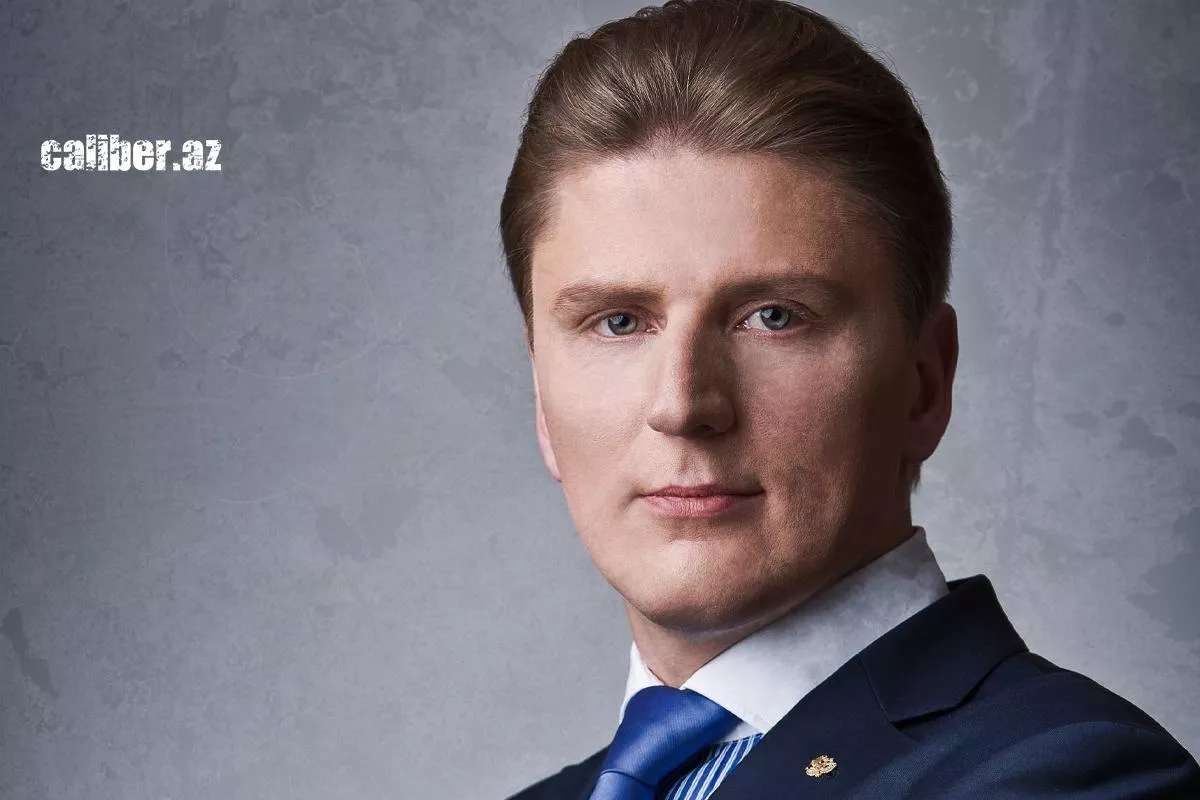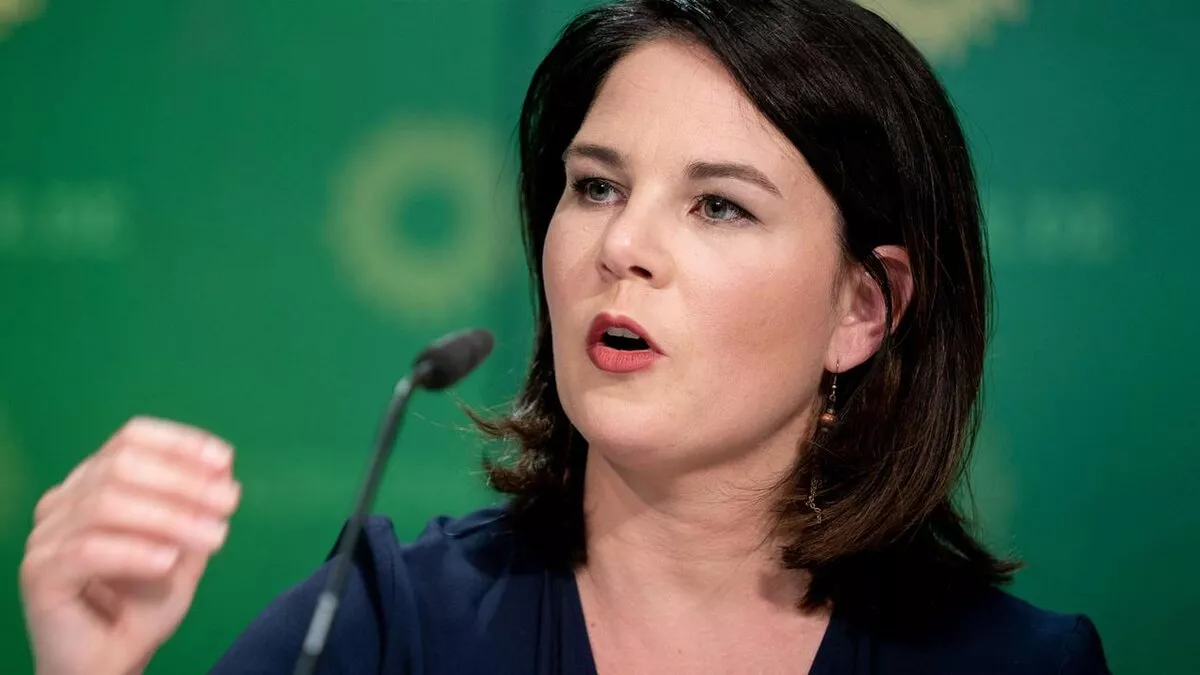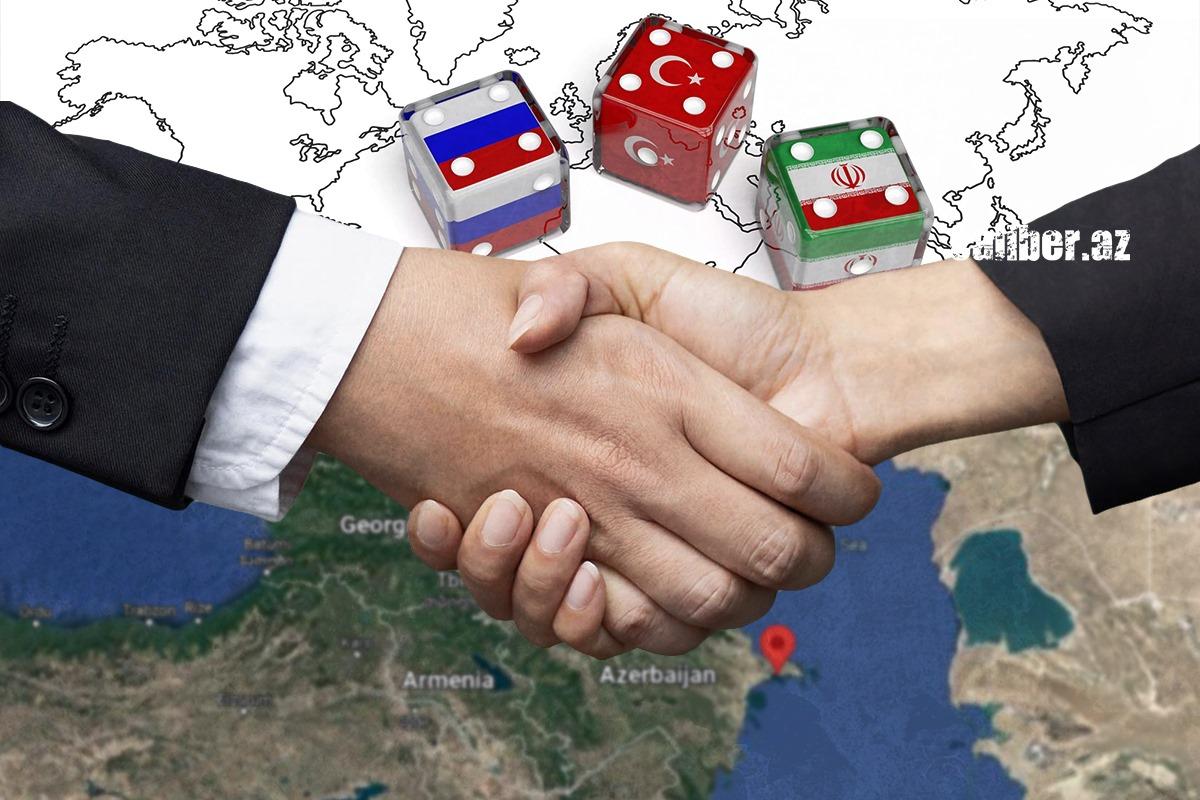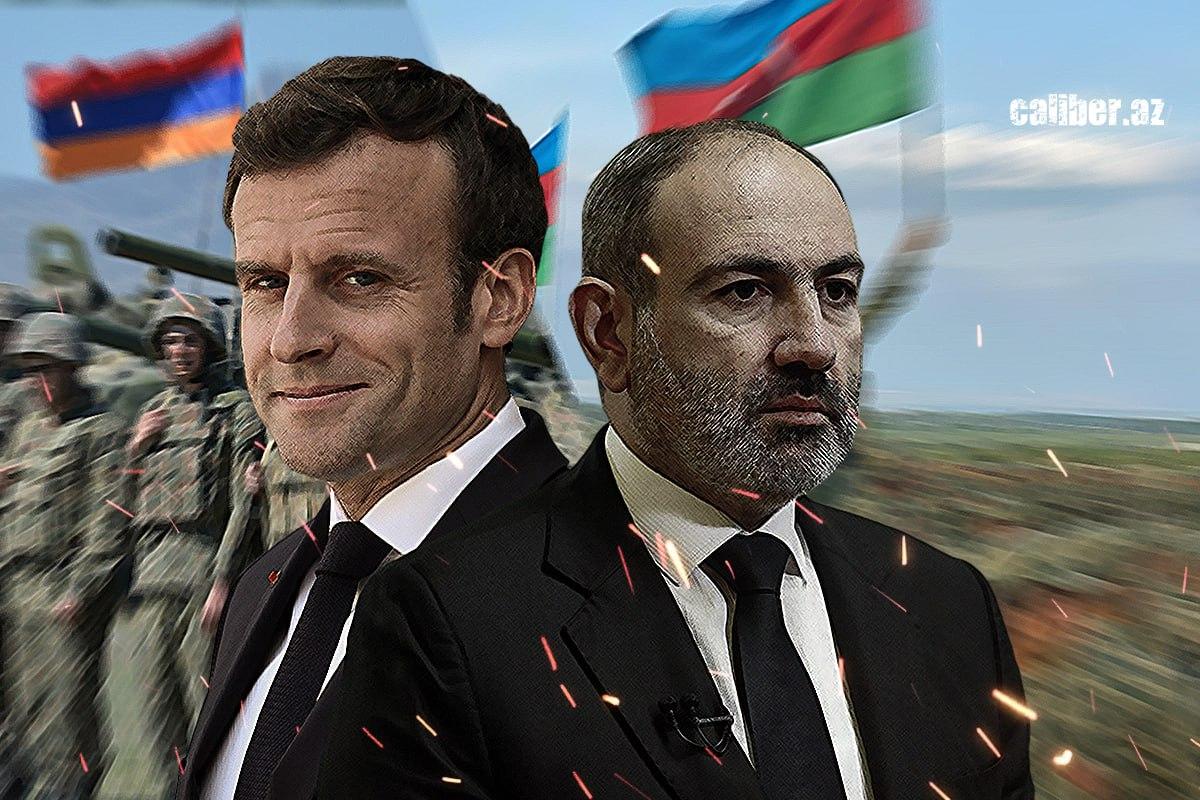Strained Baku-Berlin ties: Political shifts, future prospects amid German election Expert opinions on Caliber.Az
Russian political scientist, director of the Centre for Political Analysis and Information Security, Svyatoslav Andrianov delves into the evolving dynamics between Azerbaijan and Germany, as well as the broader geopolitical shifts shaping Europe’s future. In an interview with Caliber.Az, Andrianov provides a nuanced analysis of the forces driving international relations in 2025 from the implications of German elections on foreign policy to the strategic recalibration of global alliances.

— Relations between Baku and Berlin have become strained following the statements made by Germany’s Foreign Minister Annalena Baerbock at COP29, in which Azerbaijan was unjustly accused. This comes at a time when the popularity of the Green Party, which Baerbock represents, is rapidly diminishing. What changes could we expect after the elections in Germany? How will relations between the FRG and Azerbaijan evolve? What factors are driving anti-Azerbaijani trends in German politics?
— First, I would suggest that the reader consider whether the "Alliance 90/The Greens" party is truly left-liberal, as they claim. In recent years, the rhetoric of this party has occasionally leaned strongly towards right-liberalism, as noted by major German media outlets, from Die Zeit to Der Spiegel. This contradiction is increasingly defining the party’s politics, both domestically and internationally: more bans and control for true freedom, and more weapons for peace. It’s somewhat reminiscent of George Orwell’s famous novel 1984.
Relations between Berlin and Baku will depend on the political configuration in the German parliament after February 23 this year. Foreign policy priorities and positions will be adjusted in Berlin based on many factors, the most important of which, in my view, will be the composition of the future government coalition, including the individuals who occupy ministerial posts, as well as the matters that will be included in the coalition agreement. One thing I can confidently predict is that, even if the Greens manage to re-enter the government coalition, the Christian Democrats are unlikely to hand them the Foreign Ministry portfolio. However, even in the unlikely event that the Greens do secure the position of Foreign Minister, it certainly won’t be Baerbock, who has made a number of unforgivable mistakes in the role. By the way, even her own party members acknowledge this. A more realistic scenario would involve Mr. Klingbeil of the SPD having a strong chance of becoming the next Vice Chancellor and Foreign Minister.

In forecasting the upcoming elections, we must also consider the growing divide between the eastern and western federal states of Germany. A telling example is a poll conducted by the Kerber Foundation: 50% of West Germans believe Ukraine should continue its fight with Russia, while 40% support territorial exchanges for a ceasefire. In East Germany, 52% support an immediate ceasefire, and only 38% back its continuation. This is an important indicator, as the Ukrainian conflict will dominate the pre-election discourse of all parties.
The next German government is likely to be made up of representatives from the CDU/CSU (centre-right political bloc). How will this affect relations with Azerbaijan? On a global scale, it won’t make much difference. The key to understanding Germany’s policy towards Azerbaijan can be summed up as the formula: "conduct business and criticise politics." This is essentially the same approach that Germany has had towards Russia, and the situation is unlikely to change. Business will continue, and criticism of the government will follow – that will be the credo of Germany’s foreign policy towards Azerbaijan for the next five years. The only question is the intensity of that criticism.
— In early December 2024, you attended a meeting at the Konrad Adenauer Foundation with German President Frank-Walter Steinmeier. What were your impressions of your conversation with the country’s leader, and what topics were discussed?
— During my meeting with President Steinmeier, we discussed a complex domestic political issue: the possible revival of mandatory military service. The conflict in Ukraine and the return of Donald Trump to the White House, who explicitly states that European defence should primarily be Europe’s responsibility, makes this decision in Germany inevitable, in my view. Although there is currently an intense debate on the matter, I dare say that mandatory military service will be reinstated. The specifics regarding duration, the groups to be conscripted, and the terms will be debated, but the essence will remain unchanged.
Looking more broadly at Germany’s stance on the South Caucasus, I would highlight the enormous impact of the Ukrainian conflict on the region. Since 2022, Moscow has lost its former influence in the region, while the EU has taken steps to strengthen its own. Therefore, the future of the region is inevitably tied to these developments, with Azerbaijan emerging as a key player in shaping the new regional order.
When making short-term regional forecasts, we focus on two key factors: the configuration of the end of the Russia-Ukraine conflict and the signing of a peace agreement between Armenia and Azerbaijan. A third factor, the military-political role of Brussels, is currently insignificant, especially considering what I mentioned earlier – Europe is preparing to take on all its defence responsibilities from the US, which will increase political and economic risks.
As Russia’s influence in the region weakens, Iran has become more active, traditionally competing with Türkiye. However, Iran, Türkiye, and Russia now share a stable consensus on preventing the growth of European influence in the region. If the ongoing work to create the 3+3 format succeeds, it will further limit the influence of both Brussels and Washington. Azerbaijan, Georgia, and Armenia understand that only they can guarantee regional security. Despite disagreements and distrust among the potential participants of the 3+3 format, the desire for regional stabilisation prevails, and this will lead to a system of checks and balances. If successful, every participant will benefit, as regional stability is key to the development of projects like the "North-South Corridor," in which each participant has vested interests.

— International analysts have repeatedly pointed out the lack of prominent political leaders in contemporary European politics. As a result of this "leadership deficit," figures like French President Macron are emerging as contenders for the role of European leader, though his toxic and ambitious agenda has brought little benefit to France or Europe, other than populism. Relations between Berlin and Paris have been strained. What do you make of Macron’s role in Europe? Is there a chance for a new strong leader in Germany, like past leaders such as Helmut Kohl?
— Macron has openly pursued the ambition of being the leader of a united Europe, and given the nature of France’s political system, he stands a good chance of completing his presidential term, despite potential domestic issues. Macron has used the Ukrainian conflict to consolidate his authority within the EU, though tensions with Germany have hindered this, despite seeming reconciliation during his visit to Berlin in May of this year. Nevertheless, relations between Germany and France are subject to the same issues as those between other EU nations.
On one hand, fewer and fewer German schoolchildren are studying French, and in 2023, the German Goethe Institute’s branches in France closed amid controversy. German tourists are increasingly opting for destinations other than France, which now ranks only seventh in popularity. With the passing of those who helped create the Franco-German ties of the 1960s, emotional connections between the two nations are eroding.
On the other hand, if we look at trade relations between the two countries, they have significantly improved in recent years. This trend holds true for other EU member states as well. Meanwhile, EU citizens are increasingly distancing themselves from the idea of a united Europe, and from each other.
This divide is contributing to centrifugal forces within the EU, a serious factor in intra-European disunity that Macron has been aware of since 2017 and has tried to resist. Macron has regularly exchanged ideas with prominent German philosopher Peter Sloterdijk, who often speaks of the crisis of ideas in Europe. In his 2023 speech at the Sorbonne, Macron addressed this crisis, noting that Europe has nothing to offer its citizens anymore and that Europe consumes more than it produces.
I believe Macron’s influence will persist for the next two years, and may even grow stronger. His good relations with President Trump mean that, in many European issues, Trump will likely rely on Macron rather than a future German chancellor. We should not underestimate Macron’s role in both the Ukrainian conflict and the South Caucasus. Unlike many European leaders, he is full of ideas, ambitions, and energy. He is a formidable opponent, though his capabilities are limited, especially in the Caucasus.

— It is no secret that for many years, US geopolitical priorities have been decisive for European politicians. Now, in the era of globalization's decline, there is more talk about the decentralisation of the West and the notion that everyone must look after themselves, as Trump has often said. What does Europe expect from Trump? What will its own course be in 2025, and what guidelines is Berlin relying on?
— The Biden administration viewed the war in Ukraine through the lens of America’s global challenges, with support for Ukraine as part of the US’s policy of containment. Trump has made it clear that European issues are Europe’s problems and that the Ukrainian conflict is regional, not global. Europe will have to increase its defence spending, which, along with the deindustrialisation driven by high energy costs due to anti-Russian sanctions, will exacerbate economic difficulties.
The process of forming Trump’s new administration indicates that China will be the focus of Washington’s attention in the coming years, which will inevitably affect Europe’s partners, who will have to adjust to this new reality.
The most important point, which is rarely discussed, is the global shift in America’s approach to its foreign policy, particularly its assessment of the effectiveness of its investments in globalisation and international alliances. I believe this process began several years before Trump’s first election and has only accelerated since the 2020 pandemic.
Trump’s second presidential term will accelerate this process. The US will increasingly scrutinise its investments in international alliances, and this trend will continue even after Trump’s term ends. We are witnessing a global shift in the self-awareness of the US political class, in how they assess the effectiveness of their foreign policy, and in how they view their role in the world.








